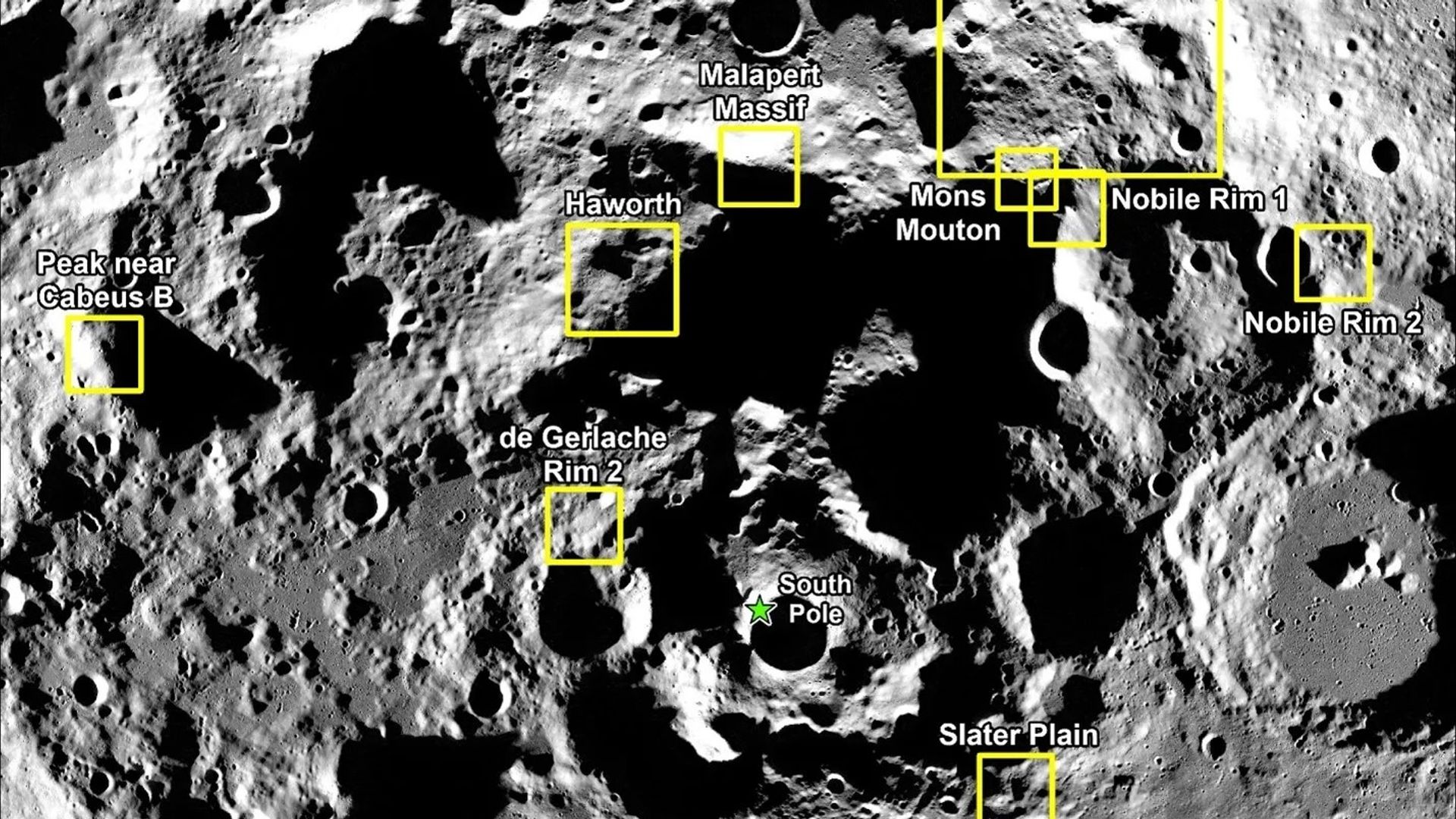NASA has identified nine potential landing spots for next year’s Artemis mission, when people will land on the moon for the first time in more than 50 years.
“Finding the right locations for this historic moment begins with identifying safe places for this first landing and then trying to match that with opportunities for science from this new place on the Moon,” Jacob Bleacher, NASA’s chief exploration scientist, said.
The moon’s south pole has never been explored by a crewed mission and has permanently shadowed areas that could preserve resources such as water.
Read more: The space race for the moon’s water
“The moon’s south pole is a completely different environment than where we landed during the Apollo missions,” said Sarah Noble, Artemis lunar science lead at NASA Headquarters in Washington.
“It offers access to some of the moon’s oldest terrain, as well as cold, shadowed regions that may contain water and other compounds. Any of these landing regions will enable us to do amazing science and make new discoveries.”
The landing sites on the moon’s south pole will now be investigated to see whether any are suitable for the landing.
The sites were chosen by the Artemis III geology team for their “scientific promise”, according to NASA.
They each have the potential to provide new insights into rocky planets, lunar resources and the history of our solar system.
“Artemis III will be the first time that astronauts will land in the south polar region of the Moon. They will be flying on a new lander into a terrain that is unique from our past Apollo experience,” Mr Bleacher said.
Read more from Sky News:
Can Kamala Harris smash the ultimate glass ceiling?
More than 1,000 Ford staff to strike from tomorrow
Be the first to get Breaking News
Install the Sky News app for free
When Artemis III lands on the moon in 2025, it will be the first time a woman and a person of colour will step onto the lunar surface.
Keep up with all the latest news from the UK and around the world by following Sky News
The mission will help NASA prepare for expeditions to Mars.








